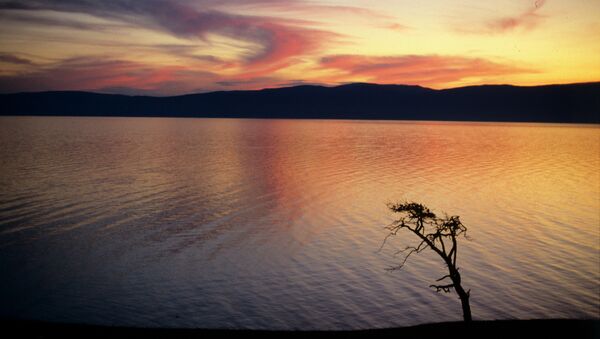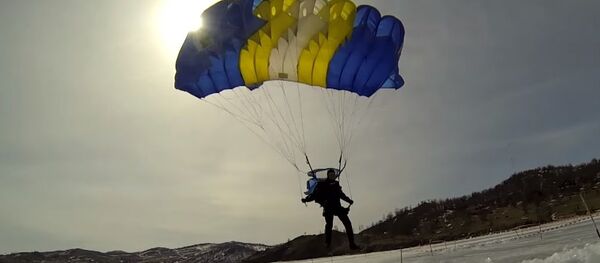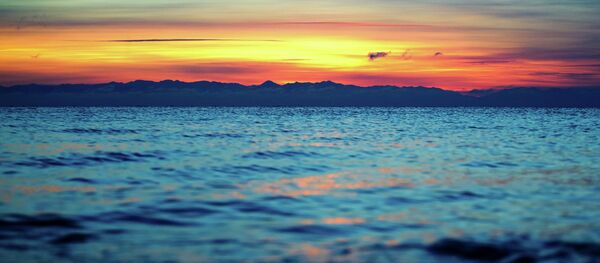At least three Mongolian hydropower plants are due to be constructed on the Selenga River and its tributaries, which supply Lake Baikal with 80 percent of its water.
💎 (@ Lake Baikal) https://t.co/SeiiPZjTrW pic.twitter.com/BcgoSJ1JDg
— Катрин (@_rakcheeeva) 5 августа 2016 г.
The potential facilities include one on the Selenga (Shuren) River, and two on the Selenga's tributaries — the Orkhon and Egyin Gol. Russian officials, for their part, see the projects as something that poses a "serious ecological threat" to Lake Baikal.
Saakyan described the Egyin Gol project as the most dangerous to Lake Baikal's environmental security. She explained the Egying Gol tributary is not included in the Russian-Mongolian agreement on the use of trans-boundary rivers, signed in 1995. It means that any action related to the tributary is an internal affair of a sovereign Mongolia, she said.
Lake #Baikal —in sun and clouds, but always spectacular! #BeyondRussia pic.twitter.com/OxqUPgejhz
— Lina Zeldovich (@LinaZeldovich) 5 августа 2016 г.
Mongols themselves claim that they are no less concerned about Lake Baikal's ecology than the Russian and the Buryats, who have long been living on the shores of the lake and consider it a sacred place and the cradle of their nation.
Greenpeace and the international environmental organization Rivers have repeatedly called for the Mongolian project's closure, which has been echoed by the Russian Natural Resources and Ecology Ministry.
Stoney Beach on the shore of Lake Baikal, Russia pic.twitter.com/gLmRRjrSFB
— World Destinations (@DESTlNATlONS_) 4 августа 2016 г.
"A possible drop in water levels at Lake Baikal may finally lead to a repeat of the situation around the Aral Sea," the Ministry said. The over-use of the Aral Sea's tributaries for crop irrigation in the Soviet Union caused the Aral Sea to almost completely dry up.
With a diplomatic decision to the problem yet to be clinched, Russian President Vladimir Putin touched upon the issue during his meeting with his Chinese and Mongolian counterparts Xi Jinping and Tsakhiagiin Elbegdorj, respectively, in the Uzbek capital Tashkent earlier this year.
#FacilitandoTuVida RT EarnKnowledge: This is what the turquoise ice formations on Lake Baikal, Russia look like. … pic.twitter.com/AKRfb4KSwC
— Facilité QRoo (@faciliteqroo) 4 августа 2016 г.
While noting the negative stance of the international environmental organizations on the Mongolian project, Putin at the same time said that "energy shortages in Mongolia are a serious problem and we understand that."
"Russian hydropower plants could increase electricity supplies to Mongolia's northern regions. Also, we are interested in the joint elaboration of issues related to the construction of such facilities alongside Mongolian and Chinese partners, he said.
Financing the Mongolian projects were the World Bank and China, which has now suspended the allocation of funds for the purpose, according to Saakyan, who cited a whopping one billion dollars Beijing earlier earmarked for the goal.
He claimed that the concerns of Russia, China and UNESCO chold no water and that their objections were politically motivated. He also claimed that the river, where a Mongolian hydropower plant is due to be built, does not cross national borders, which is why the construction is considered an internal Mongolian issue.
He also signaled his country's readiness to turn for financial assistance to other countries, including Japan, South Korea and Norway. In this regard, a question arises whether Japan will say "yes" to its participation in the project which will kill Lake Baikal, Saakyan concludes.




